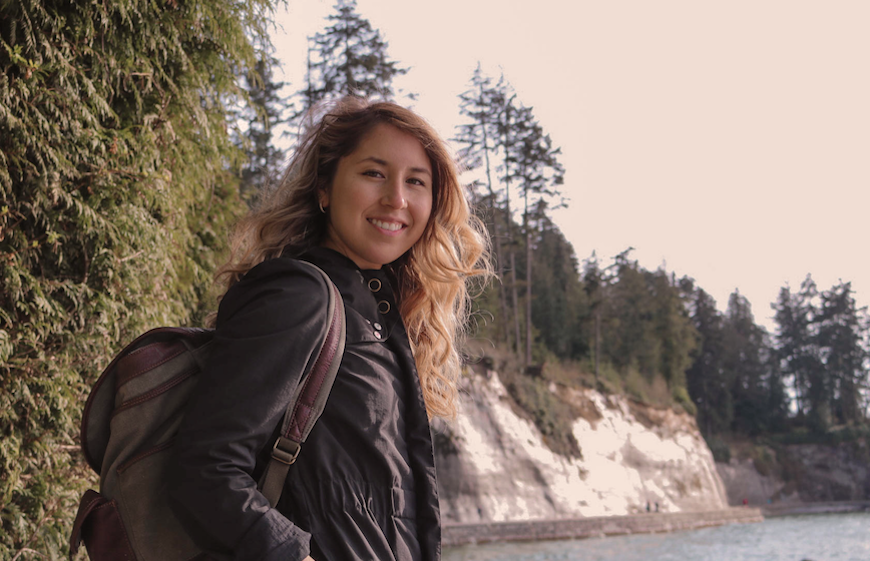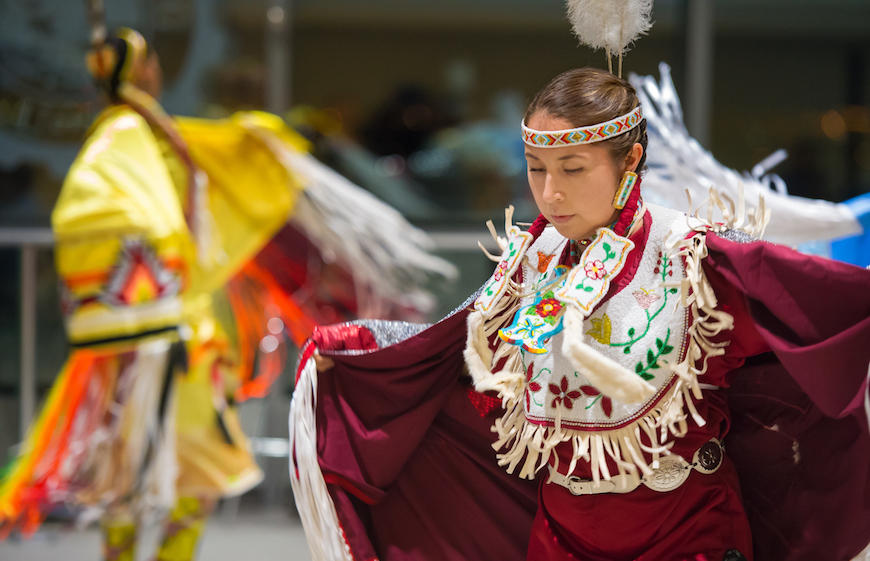
Alannah Mandamin-Shawanda graduates from the University of Alberta with an honours degree in Native Studies.
Alannah Mandamin-Shawanda had never seen herself as a university student. In high school, she hadn't taken her school work very seriously, and she had come to see herself as not being smart enough to earn a degree. But one encounter made her see the possibilities and set her on the path to an honours degree in Native Studies.
"After I graduated I went to Centre High to upgrade my marks," she explains. "This school helped me see my potential, and really set me up for post-secondary."
One of the opportunities Centre High gave students was to hear from different post-secondary institutions and learn more about the work they did. She was considering a media program at a technical institute, but a presentation from Native Studies professor Chris Andersen sparked her interest in the University of Alberta program.
"It introduced me to a totally new way of thinking that I never thought about. It was this different perspective on history, and topics about the Indigenous peoples in Canada. It was also something I felt like I could relate to, and a perspective I wanted to learn more of." -Alannah Mandamin-Shawanda
Alannah has always been closely connected to her culture. She is Anishinaabe from Wikwemikong First Nation on Manitoulin Island in northern Ontario, but she grew up in Wetaskiwin, which neighbours Maskwacis, a First Nations community near Edmonton. As one of the few Indigenous students in her small-town school, the nearby community in Maskwacis felt like a home away from home.
"Being away from my home community and the rest of my family, my parents always made sure I knew where I was from, and my identity," she says. "I was fortunate to have parents that would take me to cultural activities growing up like round dances and powwows."
One of Alannah's biggest ways to stay connected to her culture was through dance. An accomplished fancy shawl dancer, she says that dancing is an essential part of her well being.
"Fancy dancing is something that connects me to my identity, and it has always kept me grounded, especially while I was studying in school. I've been dancing my whole life, and I feel like it's a part of who I am."
Still, it took her some time to find her voice as a student. Academic advisor Freda Cardinal remembers meeting her for the first time.
"She was so quiet!" Freda recalls. "She hardly talked at all."
Anyone who meets Alannah now might hardly believe it, but she was incredibly shy, but over time, she found a voice for herself in the Faculty of Native Studies, eventually becoming the president of the Native Studies Student Association and a student recruiter, giving presentations to prospective students just like she had once been, and taking on a role as a presenter for the faculty's Indigenous Canada MOOC.
"Throughout those years I found myself being a part of a student association, student jobs that involved giving presentations and public speaking, and in being enrolled in the honours program. Everything I used to think I wasn't capable of doing." She attributes her newfound confidence to being surrounded by people who believed in her-the professors, staff and students-and especially the ongoing support of Freda Cardinal, who continued to help her find opportunities to shine.
But Alannah's voice wasn't the only thing that grew over her four years with the faculty. As a young First Nations woman, Native Studies not only helped her understand the world around her, but also more about her own personal histories.
"Everything I was learning in Native Studies about Canada's history of colonization, and the contemporary issues Indigenous peoples face I began to understand more about myself. I began to make the connections."
With her honours degree complete, she's now looking ahead to what will come next.
"Currently, I am taking a training program on organic agriculture and sustainable food systems in Tsawwassen First Nation," adding that she sees working on Indigenous food security issues as a way to give back.
"The opportunity was a way that I could be a part of something to support Indigenous people and communities to shift towards integrating sustainable food systems and healthy food practices into their life."
Graduate school may still be on the horizon, but for now, Alannah is hoping to spend some time exploring her options and thinking about the next steps to bring together her interest in media and film, her passion for Native Studies and her desire to serve Indigenous communities.
"Maybe in a couple years after I have taken the time to get more life experiences I'll have a great idea. I have always been a person to keep my options open. I'm looking forward to where I'll use the knowledge I've gained, the training after this program, and where my ideas will take me."
